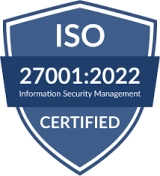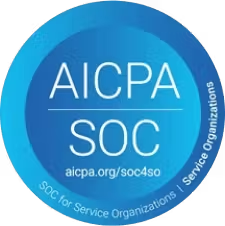Share on:
Ever heard this statement, "Cash is the lifeblood of a business?"
I bet you have.
That's how Richard Branson, a British inventor describes cash flow. The full statement is this: "Never take your eyes off the cash flow, because it's the life blood of business."
If you understand how powerful blood is to the body, I bet you will have a quick grasp on what role cash flow plays in your business.
Whether you run a big company, an SME or a startup, understanding cash flow management tips is essential to your business growth.
For a small business owner, it is more crucial since you don't have large amounts of money to throw around but operate on a lean budget.
How you manage your cash flow will determine if you will remain in business or not.
In this post, I will be addressing how to successfully manage your cash flow as an SME or startup.
This is what to look out for:
-
What Is Cash Flow Management?
-
Cash Flow Basics
-
Why Is Cash Flow Management Necessary For SMEs
-
Cash Flow Management Tips for SMEs and Startups.
-
Bottom Line
What Is Cash Flow Management?
Cash flow management involves planning, monitoring, analyzing and controlling the movement of cash in and out of your business.
Simply put, it is the way you manage your business finances so you have enough cash to run it.
It speaks to keeping an eye on the money entering or leaving your business and how it impacts your business.
Pro tip: A cash flow statement is a financial statement that helps you track your cash flow.
Cash Flow Basics
If you must successfully manage your cash flow, you must understand these basics.
Cash flow can either be positive or negative.
Positive Cash Flow:
A positive cash flow occurs when the cash entering your business is more than what is leaving your business. This is to say your inflow is higher than your outflow in your cash flow statement.
Negative Cash Flow:
A negative cash flow occurs when the money leaving your business is more than what is coming in. That is to say, your outflow exceeds your inflow.
Pro tip:
Cash Flow Formula: Cash inflow - Cash outflow =Net Cash Flow.
Why Cash Flow Management Is Necessary For Small Business
You can't run your business without cash. Bills need to be paid, salaries and other overheads.
Remember you don't have lots of cash to spare like big companies. By keeping an eye on the cash movement of your business, you are prepared to make the right decisions for your business.
Observing your cash flow tells you about customers and clients who are prompt in payment and those who are not. It also tells you inventory sucking up your working capital.
You are alerted when your cash flow is either positive or negative. If it is positive, you know you are on the safe side because you have the cash needed to keep your business running. On the other hand, a negative tells you you may be unable to run your business costs.
In simple terms, cash flow management ensures you are not stranded as a business owner, as it provides you with the information you need ahead of time to steer your business in the right direction.
Cash Flow Management Tips for SMEs and Startups.
Cash Flow Forecast
A good place to start is by doing a forecast of your cash flow. This gives you a projection of your cash inflows and outflows over some time. A cash flow forecast gives you insight into how the movement of cash will be in your business.
By forecasting, you are projecting either an increase or decrease in your inflow or an increase in your raw materials for production or service charge.
What forecasting does for you is help you with the necessary information you need to make the right decisions for your business.
This way you are not caught unawares.
Monitor and Manage Inventory
Have you ever thought about what unmonitored inventory could do to your cash flow?
Some small business owners don't check their inventory to know how long a product stays before they are sold.
By monitoring your inventory, you are provided with the information you need when restocking your goods.
Once you identify stocks not selling on your inventory, you can sell them off at discounted prices to recover your money.
Keeping your inventory reviews regularly saves you from overstocking.
And, there's no better way to do that with less hassle than using software to help you stay updated with every information about your inventory.
Send Invoices Quickly
A good way to ensure you successfully manage your cash flow is to be quick with invoicing. Don't be the reason cash isn't flowing into your business as it should. Don't allow your customers to stall on payment.
The longer you delay invoicing your clients, the longer time your money takes to get to you.
Automated invoicing is the way out of delayed invoicing. Software like Tyms Book helps you to send invoices and even send reminders to your customers.
Offer Payment Options
How about making it easier for cash to flow in by giving your customers and clients a variety of options to make payments?
Be flexible enough to allow for other payment gateways and options aside from cash or cheque.
See this article on offering payment options
https://tyms.africa/blog/how-to-get-your-customers-to-pay-you-faster-9-tips-that-work
Manage Expenses
Managing your expenses is one of the quickest ways to improve cash flow. The less you spend, the more money you will have.
To achieve this, seek ways to reduce costs without losing out on quality. You can also seek better deals and payment options with your suppliers.
Also, running an audit can expose any area you need to cut costs on for your business.
Overall, being conscious of not having more expenses will have you spending wisely while cutting down on unnecessary costs.
Review Your Pricing Strategy
What if the reason your cash flow is negative is that you are not charging adequately for your goods or services?
Reviewing your pricing strategy is a good cash flow management approach.
Sometimes small business owners are simply afraid of losing customers, hence the reason for undercharging.
However, you can always maintain a balance by taking your price a notch higher to favour your inflow while retaining your customers and clients. All you need to do is ensure the quality of your product or service is not affected negatively.
Have An Emergency Fund
There is no guarantee how the business will turn out, having money set aside can be a lifesaver on a rainy day.
A simple tip is to calculate your overhead for about three months and store it up for any form of cash flow issues that arise.
Effective Scheduling Of Payments
Some payables may not be as urgent, but effective scheduling ensures you don't rush to make payments when due dates are not close or there are no incentives for early payments.
This works as it keeps the cash with you for any form of running costs until it becomes a necessity to pay. The caveat to this is to prioritize which vendor or supplier to pay, so as not to hamper any relationship for future business.
Employ The Use Of Technology
What better way can you successfully manage your cash flow than employing the use of technology? The use of accounting software helps you achieve cash flow forecasts, and automated invoicing, track your bills and expenses, and integrate payment options for your business.
This way the bulk of the work of the cash management tips shared is sorted out.
Bottom Line
Cash flow management is crucial to how effectively you run your business. Hence the need for you not to joke with cash flow management.
Applying the cash flow management tips explained in this article will answer your question on how to successfully manage your cash flow.
With lots of accounting software that helps you with cash flow management, it can be pretty difficult to make a decision.
Check out this article to aid your selection process.
https://tyms.africa/blog/best-accounting-software-for-small-businesses-in-2023-tyms-book
Did you find this post helpful? Drop us a comment.


Tyms
3 mins read


Blessing Obiora
4 mins read


